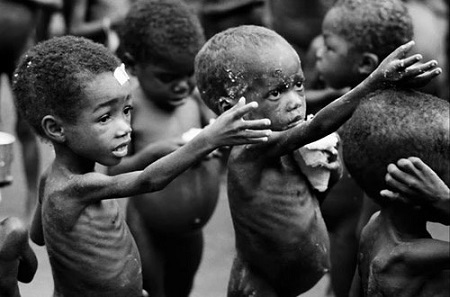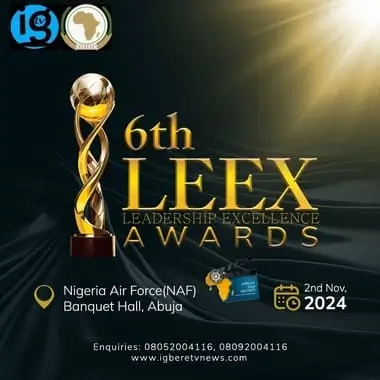
A controversial French support to Biafra as it fought to break away from Nigeria between 1967 and 1970 was not in defence of Biafra’s secession cause — even though it had a humanitarian appeal.
Instead, it was based on that European country’s desire to have access to the region’s oil, recently-declassified war-time memos compiled by the U.S. Central Investigation Agency, CIA, say.
“France supported Biafra because of the oil and ERAP, but not the Ibo revolution,” said Jean Mauricheau-Beaupre, French secretary general for African and Malagasy Affairs, referring to Emergency Response Action Plan, ERAP.
The February 10, 1969 memo quotes Mr. Mauricheau-Beaupre, the equivalent of a minister at the time, as saying French support was merely given to a “handful of Biafra bourgeoisie in return for oil”.
As the hope of Biafra breaking away increasingly seemed lost, the French minister ruled out the possibility of a guerilla war in the region, saying there was no popular support in the region.
“The real Ibo mentality is much farther to the left than that of Ojukwu and even if we had won, there would have been the problem of keeping him in power in the face of leftist infiltration,” he said, referring to the Biafran warlord, Chukwuemeka Ojukwu.
At a time renewed agitation for a Biafran state has reached an extraordinarily feverish pitch, the declassified American intelligence shed light on how external interests largely shaped a three-year atrocious war that left over a one million Nigerians dead 50 years ago.
Amongst nations that took sides in the war, only France, Gabon, Tanzania and Ivory Coast openly backed Biafra, at that time comprising present south east and parts of south south Nigerian states.
The federal government received help mainly from the United Kingdom and Russia, as it struggled to thwart Biafra’s exit.
Both sides received huge cash support, arms and ammunition, and relief materials from their backers.
Altogether, France sent $30 million worth of material to Biafra, and lent then Ivory Coast’s President Houphouet-Boigny $3 million to aid Biafra operations, said then French Minister of National Defense, Michel Debre, and Mr. Mauricheau-Beauprea, according to the diplomatic cables.
Details of French arms supplies remain classified till date.
But the CIA file said on January 13, 1970, as the war wound down, Mr. Mauricheau-Beaupre and Mr. Debre, the national defence minister, decided to remove stocks of French-supplied arms and divide same to French bases at Douala and Abidjan.
France resolved there was no chance of supporting a Biafran guerrilla resistance, CIA noted.
“The rationale for this position as expressed by Mauricheau-Beaupre to individuals concerned with executing Biafran operations was as follows: ‘France supported Biafra because of the oil and ERAP, but not the Ibo revolution,” the cable said.
The telegram containing these intelligence was forwarded to U.S. President Richard Nixon’s deputy assistant for national security affair.
Richard Helms, the director of CIA at the time, said there was “cynicism on the part of the French” to support a Biafran guerrilla resistance.
Later, the CIA noted the war had stalemated with federal troops surrounding the Biafran enclave. Yet, it analysed that despite the federal military’s superiority in personnel and material, there was “very little prospect that either side, by itself, can win militarily in the next six months unless Biafra’s arms supply is cut off”.
“A prolonged stale-mate or ceasefire could well result in the replacement of the present moderate leadership by military leaders who would be proponents of a ruthless, all out military victory and less concerned about international opinion,” the CIA said of the military ruler, Yakubu Gowon.
It also noted that Mr. Ojukwu, a former lieutenant colonel, had the strong support of a people who seemed determined to win self-determination.
“The Biafran leaders have successfully—-if cynically—exploited the issue of starvation to win political sympathy abroad. They believe time is on their side and that either (a) the FMG coalition will collapse or (b) outside sympathy for their plight will bring about a solution favourable to them,” it wrote.
Foreign powers and interests
The CIA said the British government supported the federal military government with “non-sophisticated arms sales”, while the Soviets became a major arms suppliers at the outset of the war.
The U.S. on its part embargoed arms sales to both sides, in a war that also created opportunity for influence peddling between the west and the east.
“The FMG gives frequent assurances that the Soviet involvement is only a matter of wartime necessity and portends no political realignment of Nigeria’s traditional pro-Western stance. We have no evidence that the FMG has thus far granted any significant political concessions in return for Soviet arms. However, Soviet prestige and acceptance has increased,” the CIA wrote.
“Soviet intentions are unclear. They probably consider Nigeria a target of opportunity to extend their influence at Western expense and relatively little cost to themselves. Whether requested or not, they have not gone beyond the provision of military equipment, including aircraft and the training of pilots.”
“Although disappointed and perhaps somewhat embarrassed–at slow FMG military progress, they appear willing to continue their support in the belief that prolonged fighting and FMG frustrations will increase the political value of their help,” the report said of Russia.
At the Organization of African Unity (OAU), all but four members (Ivory Coast, Gabon, Tanzania, Zambia, that recognized Biafra in 1968), shifted support to the Federal Military Government by 1969 and regarded the civil war as an internal question which should be solved within an African (OAU) frame-work.
For the United Nations, there was no role for it in the war, beyond the participation by UNICEF and other specialized agencies in the relief effort.
The U.S. said it regarded the civil war as primarily a Nigerian and African problem, but continued to recognise the FMG; imposed an arms embargo on both sides; contributed $30 million to the international relief effort; voiced political support for a negotiated settlement in the context of one Nigeria with workable safeguards for Ibo protection.
The French decision to supply arms clandestinely to Biafra probably saved the rebellion when it appeared near defeat last summer, the CIA cable noted, saying President De Gaulleʼs motives were mixed.
First, France hoped to acquire British and American oil concessions in the oil-rich Niger Delta, and could have been motivated by the possibility of the breaking up of an Anglophone federation which could have exerted a powerful influence in a West Africa it had strong interests.
“So far, the French have stopped short of outright recognition. They deny giving arms. We simply do not know how far the French are prepared to go in support of Biafran independence,” the U.S. said.
Ojukwu’s first destination revealed
Mr. Ojukwu fled as the stronghold city of Enugu fell under federal control. The CIA said his first stop was Gabon, contrary to the commonly known fact that he travelled to Ivory Coast.
In Libreville, the Gabonese capital, Mr. Ojukwu lived in a private villa and told French agents he departed Nigeria according to the wishes of his general staff, Phillip Effiong, and to spare his people from extermination.
Christopher Onyekwelu, Biafran finance representative in Europe and brother-in- law of Mr. Ojukwu, was given a round-trip ticket to Libreville on January 13 by the French general secretariat for African and Malagasy Affairs in Paris.
He was to join Mr. Ojukwu in Libreville a day later. Separately, C.C. Mojekwu, Biafra’s representative in Lisbon, Portugal, also departed by air for Libreville.
Later, French secretary general for African and Malagasy Affairs, Jacques Foccart, left Yaoundé where he was attending Cameroon’s tenth anniversary celebrations to meet with Mr. Ojukwu in Libreville.
****
Via Premium Times








